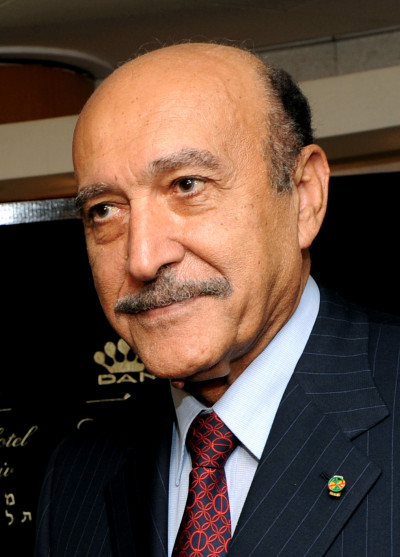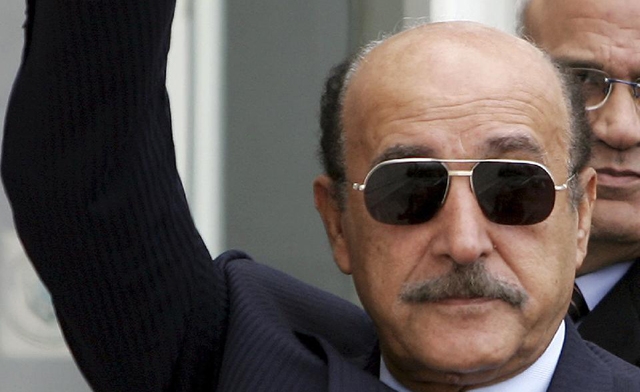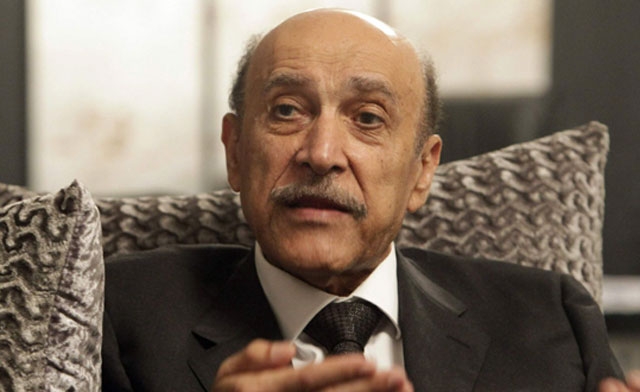Omar Suleiman (Omar Suleiman)

Suleiman was born in Qena in Upper Egypt. In 1954 at the age of 18, he moved to Cairo to enroll in Egypt’s prestigious Military Academy. He received additional military training in the Soviet Union at Moscow’s Frunze Military Academy. He participated in both the Six-Day and October wars. In the mid-1980s, Suleiman earned additional degrees, including a bachelor’s degree from Ain Shams University and a master’s degree from Cairo University, both in political science. A fluent English speaker, Suleiman was transferred to military intelligence, where he worked on Egypt-United States relations.
Suleiman became deputy head of military intelligence in 1986, and its director in 1991. In 1993, he became the chief of the Egyptian General Intelligence Service (EGIS). In 1995, he was said to have insisted that President Mubarak ride in an armored car during a visit to Ethiopia. A would-be assassin fired on the vehicle, but Mubarak escaped without injury due to the added precautions. His name only became known in later years, breaking the tradition of keeping the name of the Egyptian head of Intelligence a secret known only to senior government officials. It was released in the media around 2000. In his role as Director of EGID, the British newspaper the Daily Telegraph called him “one of the world’s most powerful spy chiefs”. In 2009, Foreign Policy magazine ranked him as the Middle East’s most powerful intelligence chief, ahead of Mossad chief at the time Meir Dagan. According to diplomatic cables leaked to Wikileaks, Suleiman pledged in 2007 to Yuval Diskin of the Israeli Security Agency (ISA) to “cleanse” Sinai of Palestinian arms smugglers.
Suleiman promised Israel in 2005 that he would prevent Hamas from gaining control over Gaza in the 2006 Palestinian elections, according to a US diplomatic cable. Amos Gilad, head of the Israeli Defense Ministry’s Diplomatic-Security Bureau, and Suleiman discussed their common fear of Hamas winning the Palestinian elections set for January 2006. Suleiman asserted to Gilad that there “will be no elections in January. We will take care of it.” Suleiman did not elaborate as to how Egypt would stop the Palestinian elections from taking place. Suleiman was separately quoted as saying Gaza could “go hungry, but not starve.” The U.S. Embassy in Tel Aviv wrote that Suleiman feared Hamas rule in Gaza would bolster the Muslim Brotherhood in Egypt. Gilad requested that the U.S. closely hold this information and said he did not know how the Egyptians could prevent the elections from taking place but that the “only people the Palestinians can trust now are the Egyptians.”
Suleiman was directly implicated in the controversial CIA “rendition” program. Journalist Stephen Grey in his work, Ghost Plane, states that after taking over as intelligence director, Suleiman oversaw an agreement with the US in 1995 that allowed for suspected militants to be secretly transferred to Egypt for questioning. Although Suleiman’s Egyptian Intelligence was required to provide “assurances” that prisoners handed over through this program would not be subjected to torture, at least one CIA officer testified that such assurances from them were unofficially regarded as being as worthless as “a bucket of warm spit”. Suleiman was accused of complicity in the torture of Al-Qaeda suspects in Egypt, particularly the case of Ibn al-Shaykh al-Libi, who was captured and handed over to Suleiman. The information al-Libi gave under torture was cited by US officials in the run-up to the 2003 invasion of Iraq as evidence of a connection between Saddam Hussein and al-Qaeda. Al-Libi later retracted his confession.
Suleiman was seen as a very close and trusted ally of former President Hosni Mubarak, sharing many of his views on key issues such as Iran, Egypt–Israel relations and the United States, and treatment of the Muslim Brotherhood. Although he was a military man who by law is not a member of Mubarak’s National Democratic Party, he preferred suits to military uniforms and was seen as a major link between Egyptian political and military elites. Due to his role in the regional political scene and the lack of an alternative candidate acceptable to Hosni Mubarak, some speculated that Suleiman would succeed Mubarak as President. In particular, he was seen as the choice of the Egyptian military establishment. Suleiman denied any intent to run for election to the office. On 29 January 2011, he was named Vice President of Egypt during the civil unrest, ending a vacancy in the position that lasted almost 30 years. He was sworn in two days later.
On 5 February 2011, a senior Egyptian security source denied reports of an assassination attempt on Omar Suleiman, saying there was no truth to them at all. Fox News reported that an unnamed official in the Obama Administration asserted there was an assassination attempt on Suleiman “soon after Suleiman was appointed”, and claimed that it took the form of an attack on Suleiman’s motorcade. Wolfgang Ischinger, host of the Munich Security Conference and originator of the incorrect allegations, later said he “was led to believe that we had a confirmed report but in fact we didn’t” and also added that the information had come from an “unsubstantiated source.” Later on 24 February 2011, Foreign Minister Ahmed Abul-gheit confirmed that Suleiman had survived an assassination attempt on 4 February, when a group of unidentified men opened fire on Suleiman’s car from a stolen ambulance in Cairo.
According to an interview with the Egyptian ambassador to the United States on 10 February 2011, Omar Suleiman became the de facto President of Egypt after President Mubarak transferred his power to Suleiman. The following day Suleiman announced Mubarak’s resignation and governing power was transferred to the Armed Forces Supreme Council. According to the Egypt State Information Service, Suleiman subsequently ceased holding the office of Vice President. On 6 April 2012 Suleiman announced that he would be running for president, after some demonstration. Suleiman accused the Muslim Brotherhood of planning the assassination attempt on 5 February. Moreover, he accused them of some threats of “SLAIN if he run for the president” that he had received before running for it. Furthermore, the Brotherhood and some Islamists arranged a huge protest against Suleiman whose popularity had grown dramatically.
On 19 July 2012, Suleiman died in a hospital in Cleveland, Ohio, while undergoing medical testing for an unknown problem. The official Egyptian state news service, MENA, reported that Suleiman had been suffering from heart and lung issues for several months and that he had died of a heart attack. Hussein Kamal, one of his assistants, said it was an unexpected event. “He was fine. It came suddenly while he was having medical tests in Cleveland.” Preparations got underway to send his body to Egypt for burial. Suleiman was given a military funeral, with Field Marshal Mohamed Hussein Tantawi, the then head of the Supreme Council of the Armed Forces, attending.
Born
- July, 02, 1936
- Qena Egypt
Died
- July, 19, 2012
- USA
- Cleveland, Ohio



